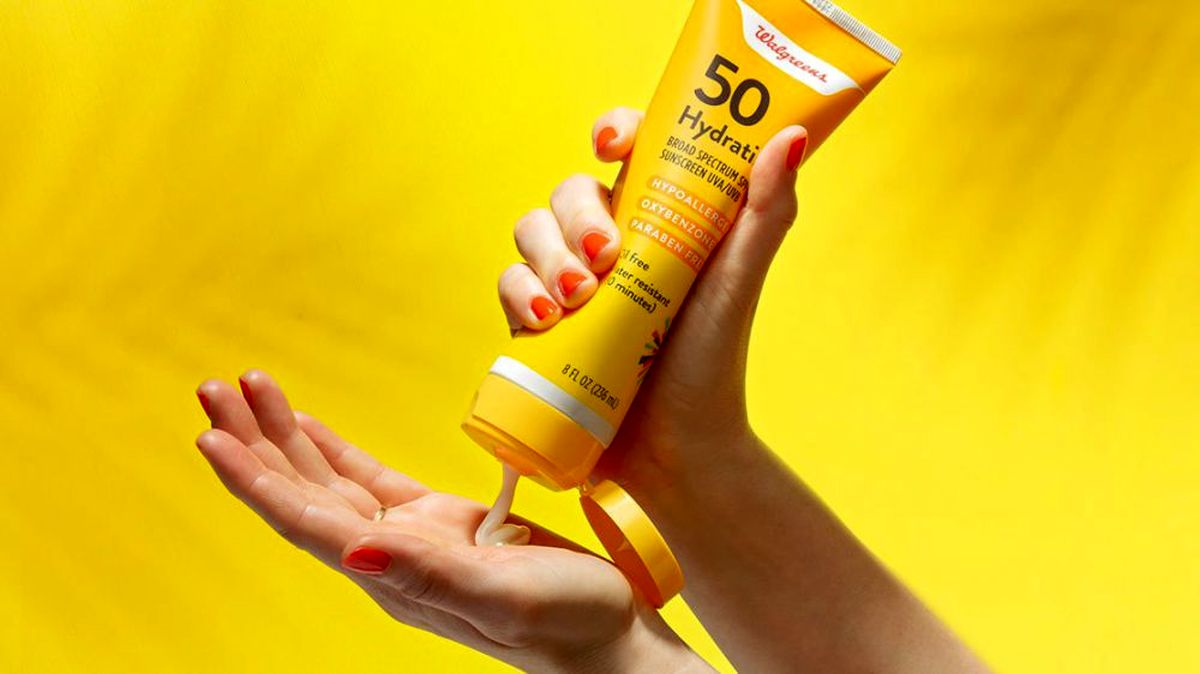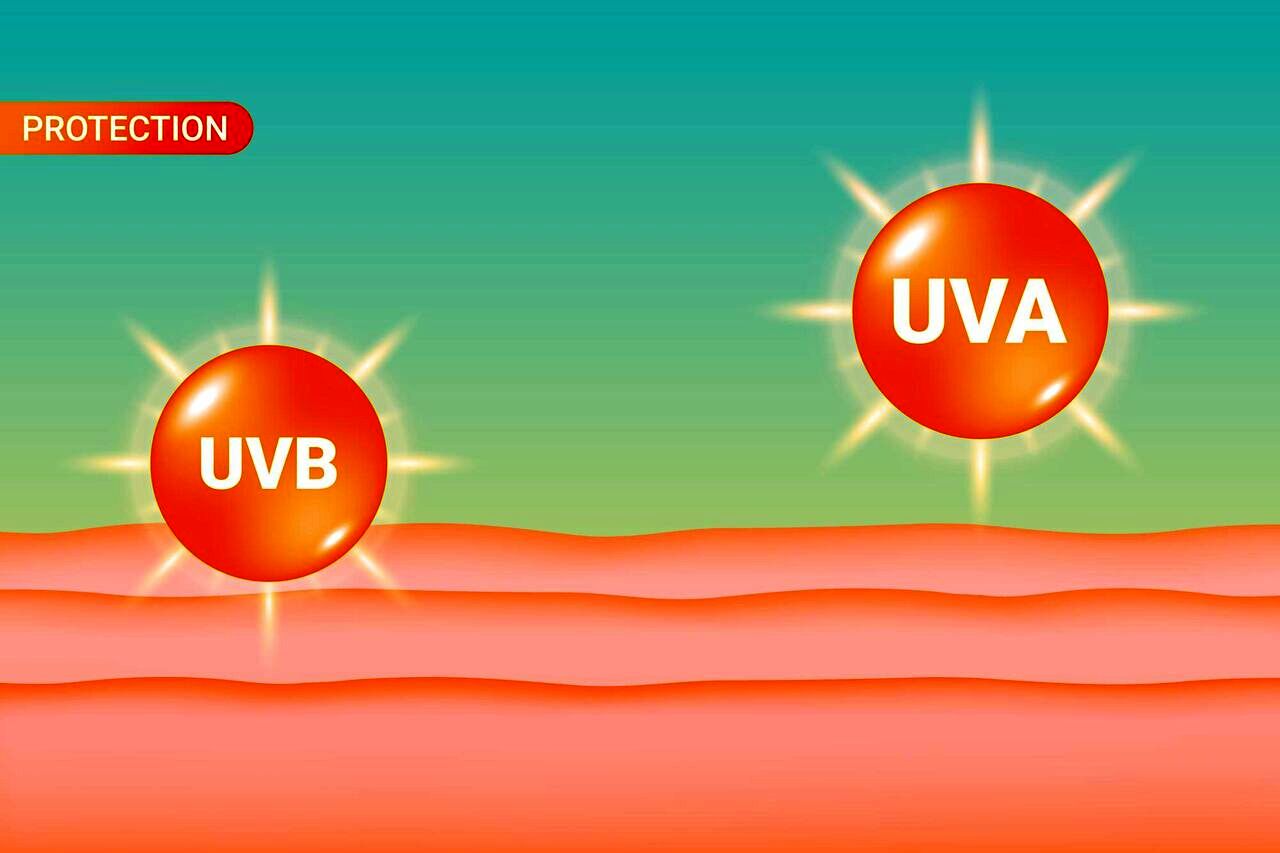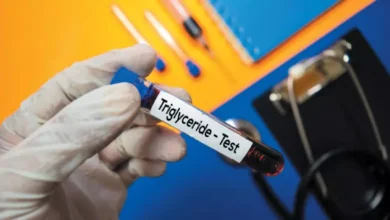
Sunlight is beneficial for the skin of the face and body to the extent that it provides the body with enough vitamin D and does not harm the skin or expose the person to skin cancer. This article is a guide for choosing sunscreen according to different skin types.
During the summer, more harmful skin-burning UVB light shines on your body than in any other season, and it’s a necessary time to protect your skin. The American Academy of Dermatology recommends avoiding peak sun exposure, seeking shade, protecting your skin and eyes with a hat, sunglasses, and protective clothing, and liberally applying SPF 30+ or 50 sunscreen every 2 hours or sooner.
Sunlight is beneficial for the skin of the face and body to the extent that it supplies the body with enough vitamin D, does not harm the skin, and does not expose the person to skin cancer, so it is possible to spend a certain amount of time under direct sunlight every day. But for the same period, it is recommended to use sun cream and lotions to prevent cancer. This article is a guide for choosing sunscreen according to different skin types.
normal skin
*Neither dryness nor fat is felt on normal skin. Normal skin is neither dry nor oily. People with normal skin have regular, smooth skin texture, similar to closed skin, without blemishes and pimples, and have a clean and soft appearance. Normal skin usually has regulated fat and moisture and requires no special care.
* The best sunscreens for normal skin are fat-free or low-fat and have an SPF rating of 30 to 50 to protect the skin from the sun’s harmful rays.
Normal skin symptoms
– It is neither greasy nor dry
– smooth and uniform
– no blemishes
– fine skin pores
– soft and elastic
Sensitive skin
Sensitive skin, also called irritable skin, is skin with red and inflamed spots. It is susceptible to environmental factors such as sunlight and quickly shows symptoms such as redness or burning.
Mineral sunscreens are the best option for people with acne rosacea (a condition similar to adult acne; chronic redness of the face) or anyone prone to skin sensitivity or irritation. These creams contain soothing and protective compounds of zinc oxide or titanium dioxide. Look for a product free of fragrance and common allergens, as the inactive ingredients in many sunscreens can cause skin reactions.
Symptoms of sensitive skin
– small red or dark spots
– redness of the skin
– feeling itchy
– inflammation of the skin
– sensitive to environmental factors such as heat
For dry skin
Dry skin means skin with very little fat; the fat glands under the skin are secreted very little, and it usually does not have enough moisture.
Look for a two-in-one product for dry skin: a moisturizer with SPF or a sunscreen labeled moisturizing or hydrating. Please choose a product that hydrates the skin and prevents it from dehydrating. Creams containing allantoin prevent facial redness and premature aging by protecting the skin from free radicals and helping to soften and rejuvenate the skin.
Symptoms of dry skin
– Scaling
– Dryness and sometimes redness
– Stretching feeling on the skin
– Having fine wrinkles due to dry skin
– Roughness of the skin
For mixed skin
Combination skin is both oily and dry, unlike ordinary skin. It’s easy to tell if your skin is a combination or dry. Because dry skin does not feel greasy at all. But there are a few subtleties in distinguishing between mixed and oily skin. Mixed skin on the forehead, nose, and chin feels oily and shiny. When they wake up in the morning, they think oily by touching their nose and around it, but the skin on the cheek is dehydrated, and even stretching is felt in this area.
Sunscreen for combination skin should be compatible with dry and oily face areas. It should not aggravate dryness or cause acne in oily areas of the face. The most important feature of the sunscreen suitable for combination skin is a moisturizing and fat-free formulation for dry and oily face areas.
Mixed skin symptoms
– It is both oily and dry
– Prone to pimples and blackheads
– Relatively large pores (especially on the nose)
– Oily forehead, nose, and chin
– Dryness in the cheek and temple area
For oily skin
In oily skin, a lot of fat is secreted from the sebaceous glands, and in fact, it is shiny and oily skin that usually has large and open pores. The possibility of blackheads, subcutaneous pimples, and purulent pimples in oily skin types is very high due to excessive fat and open pores. In addition to genetic factors, hormonal changes are also involved in creating oily skin.
The best options for oily skin are creams whose structure and ingredients act as a skin oil secretion controller and mattifier and are resistant to sweating and washing.
Oil-free, non-comedogenic formulas can protect your skin without causing blemishes. (Comedogenic is a substance that causes acne by closing the skin’s pores, and non-comedogenic means an anti-acne sense.)
Symptoms of oily skin
– It is shiny
– Oil and fat can be felt on the skin
– Relatively large pores (orange peel)
– Prone to oily pimples
– Prone to blackheads and subcutaneous acne
Suitable sunscreen for swimmers and people who exercise outdoors
For boaters, fishermen, surfers, swimmers, sailors, runners, climbers, gardeners, golfers, etc., frequent and prolonged exposure to sunlight can cause premature aging, significant skin damage, and increased risk of skin cancer. Sports sprays, creams, or lotions with SPF 50 (sun protection factor) labeled water-resistant or very water-resistant can help protect the skin long-term.
Sunscreen for children and babies
Sunscreen is generally not recommended for infants under six months of age, as hats, shaded areas, and heat-protective clothing are the safest conditions for infants.
Sunscreen is essential for toddlers and older children because many growing children are exposed to UV rays. Mineral sunscreens containing zinc oxide or titanium dioxide are the safest coverage for sensitive and developing skin.








